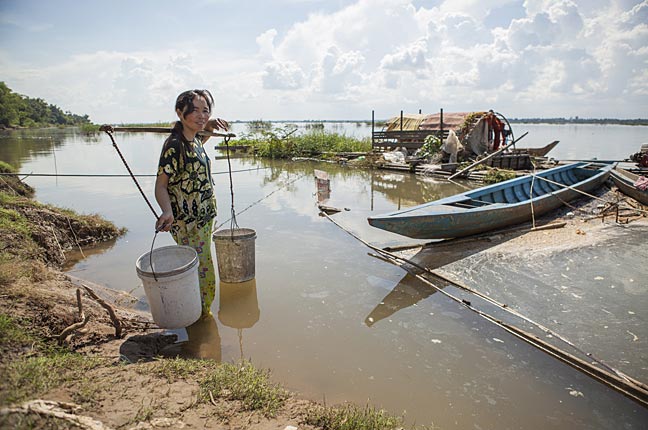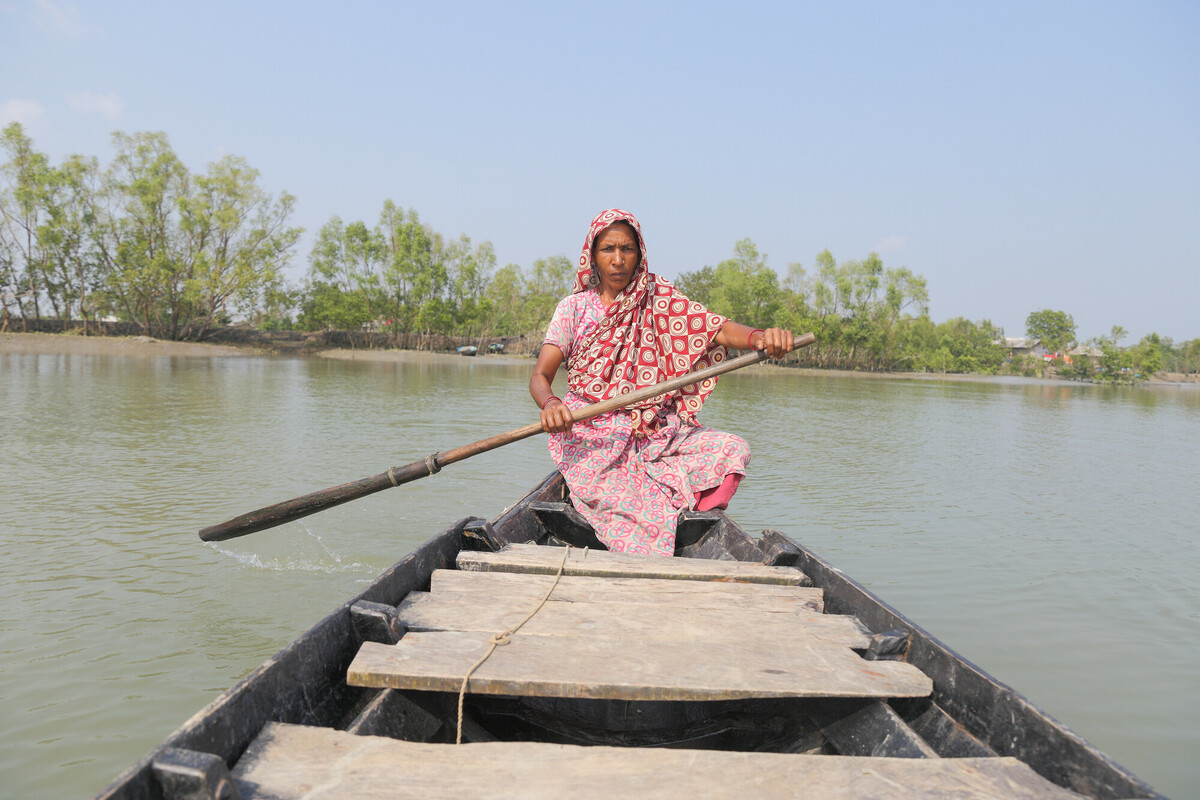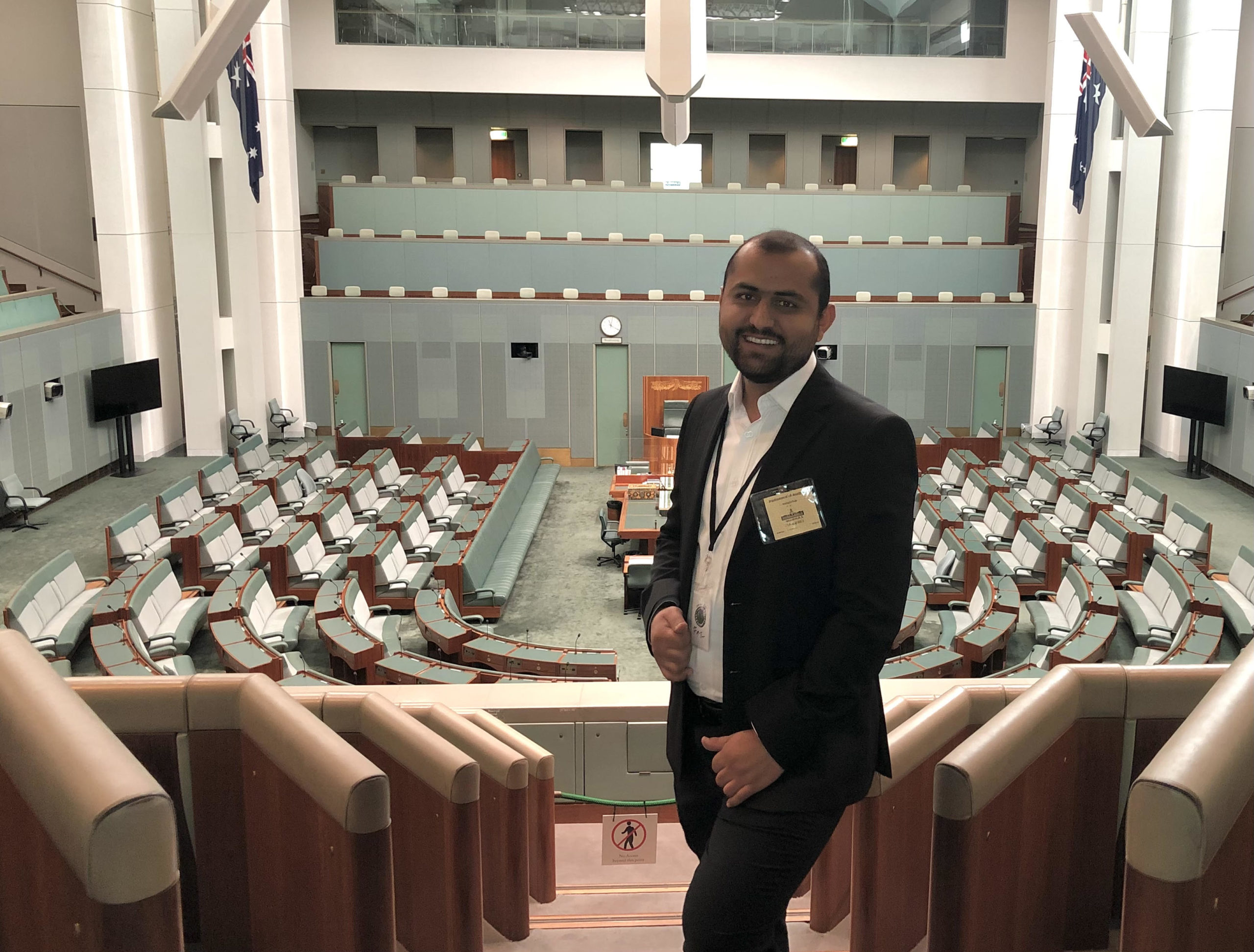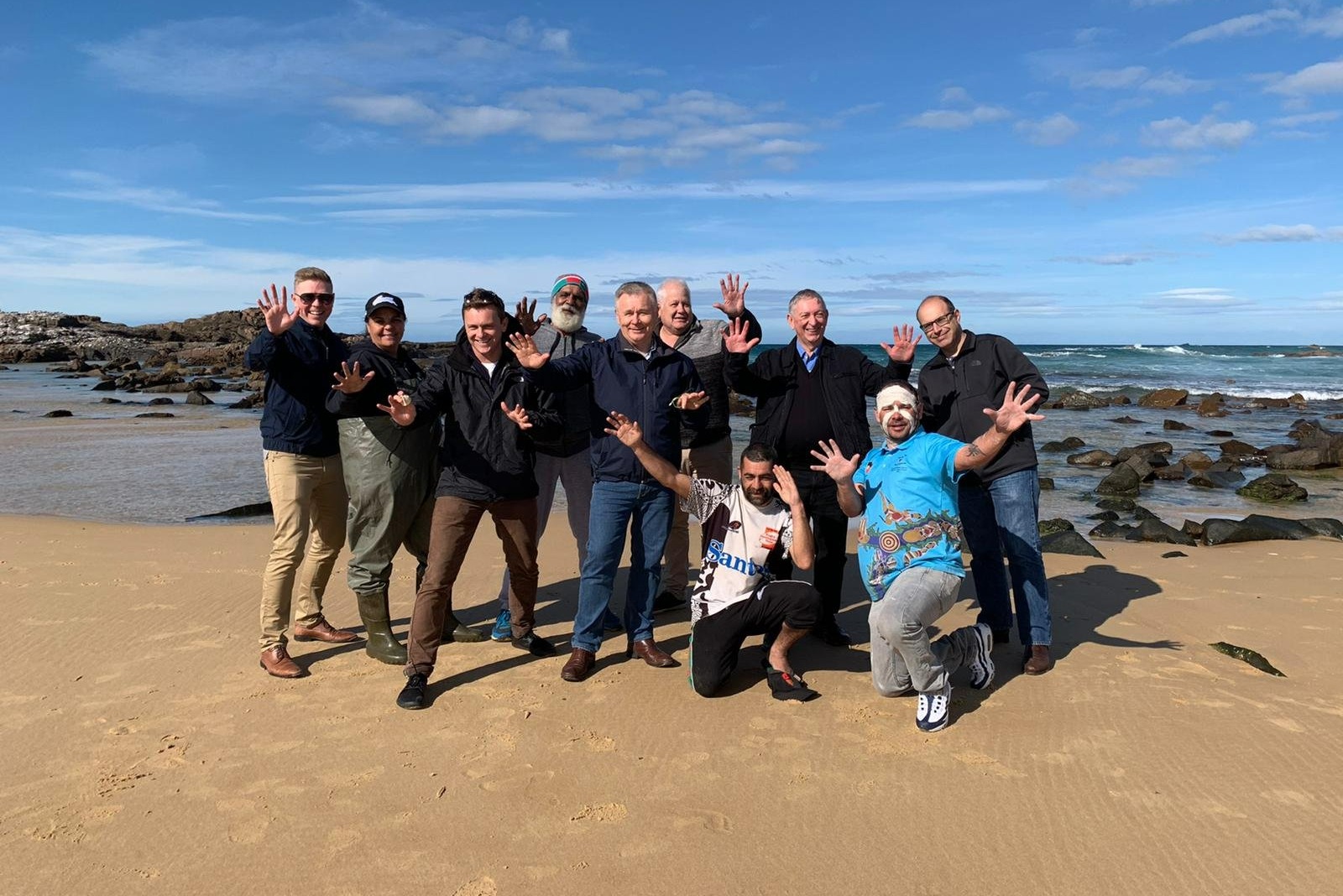By Robin Narciso – an Oxfam volunteer in Phnom Penh
What is extreme poverty? Living on under a dollar per day? When you see what the Mekong gives to its people, you understand how it is the river, not a couple of dollars that determines their survival.
In Samphin, a small town in the Cambodian district of Sambor, the Mekong means life. I already mentioned in my previous post how the Mekong provides its people with plenty of fish. Rice too, “comes” from the Mekong, since the river irrigates the paddies and favours rich harvests. On our last visit to Samphin, we asked people if they were aware of the plans to construct a new dam. They had a vague idea of what a dam looked like, but they all knew that “their” new dam meant losing their home.
And this is our main issue. How do we ensure that Samphin’s people, and all the people living along the Mekong, don’t lose their homes? Oxfam’s position is that the construction of all the dams on mainstream Mekong should be halted until proper studies on their impact can be done. This translates into encouraging regional governments, private companies and investors to review their projects. But obviously, they are not easily convinced.
The official argument for the construction of the dams in the Mekong region is that it creates economic development. The assumption in governmental halls and financial institutions is that economic development is always good as its benefits “trickle down” – improving the lives of the poor. They may concede that…yes, the poor might need to relocate and maybe lose access to the river and its source of food, BUT the construction of the dams would provide them with jobs, and consequently steady and increased incomes. Ultimately the Mekong poor would earn more, live a better life and, with more bucks in their pockets, graduate from poverty.
If poverty in the Mekong was only a matter of income, this argument might hold true. But, as it has been shown in one of our studies, most of relocation costs are so underestimated that small increases in income has little if no impact. We can’t overlook the cost of losing access to a constant and cheap source of food. Will the poor be able to buy the same quantity and quality of food they were previously obtaining by fishing and harvesting? Another example is the cost related to relocating to a new living environment. Relocation often has physical and psychological effects on people that can lead to illness. And how easy it is to underestimate just what it means to be forced away from your home, your gardens, your lands and the river that is your family home. Money can’t rebuild that connection for people and around the world experience has shown that rebuilding river communities’ livelihoods is near but impossible to do on a sustainable basis. Even in the fertile soils and fast growing environment of the tropics it takes many years to re-establish fruit trees and home gardens which underpin the food security of river communities. Our same study reported that mortality rates in resettled villages in the region increased by 20 per cent in the first year, and that increase rose to a tragic 70 per cent in the following five years. Will the poor be able to afford medical treatment? The answer to these questions is clearly negative.
And this is why Oxfam is working to ensure that the Mekong’s poor have more of a say over the project decisions that will have such a big impact on their lives. Once projects are scoped out and political decisions taken, consultation with potentially affected communities becomes even more important. Under basic good practice in hydropower development, impacts to communities should be avoided, mitigated, minimised and finally compensated for. Project-affected communities have rights to receive proper compensation for lost lands, access and control over resources. It is never a positive scenario but we do need to take it into consideration. If the construction of some dams proceeds, we need to ensure that developers assess all the REAL costs of involuntary relocations – for women, men, old and young, and for future generations. To monitor these projects, and ensure communities know about their basic rights, we are supporting local organisations and communities. We believe that creating a strong coalition of informed local organisations able to demand and obtain fair treatment and continuous support for the relocated communities is critical to hold regional powerful actors accountable. We can’t accept that the poor of the region pay the price for the dams while the rich enjoy the benefits.



